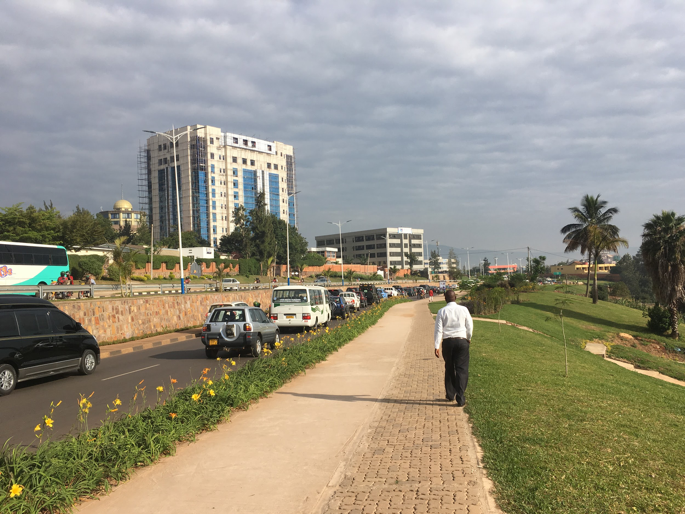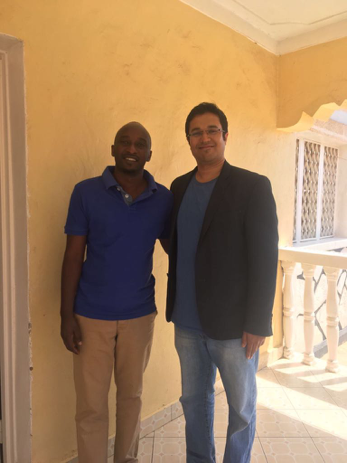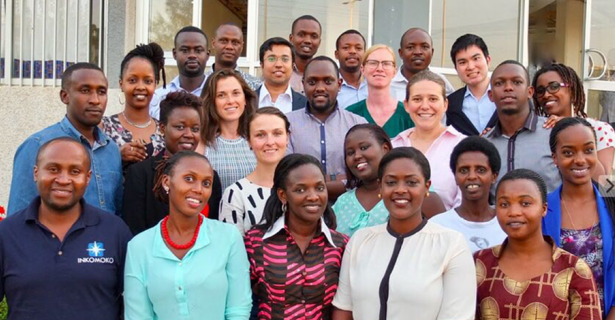“Isn’t Kigali beautiful?”, Sabrina asked as we drove past the clean streets near the airport. I was caught by surprise; I had just landed in Rwanda, and my jet-lagged mind was still on my luggage. Looking out the window at the tidy roads, with workers cleaning at regular intervals, I had to agree.

Sabrina worked for Inkomoko Entrepreneur Development, an organization based in Kigali, the capital of Rwanda, the land of a thousand hills and millions of smiles. I would be here for the next two months, working closely with low income micro and small entrepreneurs, understanding their challenges, assessing their businesses and advising them on measures to scale. Seventy-five percent of Rwanda’s population works on subsistence agriculture, with almost 40 percent of the population living below the poverty line. The work we did at Inkomoko helped create new jobs in new industries in a country still struggling to overcome the effects of a genocide in the not too recent past.
Kigali was nothing like I had imagined; it was a green city of hills interspersed with new buildings. The team at Inkomoko was friendly, welcoming and excited to work with us. I was happy to note that the team was comprised mostly of Rwandans, with more women than men. Led by Sara and Julienne, two dynamic co-founders, the Inkomoko team was passionate about helping small businesses overcome challenges and grow. There were about 30 people in the office, divided into the Client Services team and the Special Projects team.
 There were Business Development Associates (BDAs) and Business Development Managers (BDMs). I was assigned to Osman, a smart and capable BDM who had prior experience in financial accounting. He was managing 12 clients, of which I was to look after four. Osman informed me that we were currently in the business assessment phase, analyzing our clients’ operations, sales and finances to be able to best recommend the next steps for growth.
There were Business Development Associates (BDAs) and Business Development Managers (BDMs). I was assigned to Osman, a smart and capable BDM who had prior experience in financial accounting. He was managing 12 clients, of which I was to look after four. Osman informed me that we were currently in the business assessment phase, analyzing our clients’ operations, sales and finances to be able to best recommend the next steps for growth.
My four clients were Doreen Abayana, Laura Stupin, Louis-Antoine Muhirela and Fiston Mudacumura. Doreen ran her own fashion house, working on orders for hotels and restaurants as well as individual clients. Laura wanted to set up her own mentoring and coaching service to help unemployed Rwandan youth find jobs online. Mergims was an online payment platform created by Louis-Antoine, allowing Rwandans abroad to buy goods and services for friends and family back home. Fiston ran Mudacumura Publishing, which published story books for children. I spent the first two weeks visiting my clients, learning about their businesses, listening to their problems and understanding how best I could help. It was eye-opening and heartening to see how passionate these clients were, despite problems, significant challenges and limited means.
Over the next two months, I worked on business assessment reports, suggesting and implementing improvements based on my experience and knowledge gained as an MIB student at Fletcher. I was able to develop unique models to assess the gaps in the businesses and share them with the clients to help them improve their processes. I also conducted trainings on business modelling, sales and marketing, as well as team building. It was highly satisfying to encourage and support the clients, and see them become more confident in implementing the new business strategies based on a clearer understanding of their markets. In addition to the clients I had, I also helped Osman with some of his other clients. One client, Pearl was so encouraged after our conversation about her business (she wants to make healthy and tasty food products for people), that she showed up the next week with muffins and smoothies!
I enjoyed working at Inkomoko Entrepreneur Development. Everyone was committed to their work, and the office was filled with the inspiring messages and values of the organization.
It was a great learning experience, and I truly believed in the approach of instilling confidence in the clients as well as developing solutions which made sense in the local context, understanding the ground realities. I am grateful to the IGL grant that made this visit possible and helped me learn about the problems faced by small and micro entrepreneurs.
I cannot wait to come back to this beautiful region of East Africa and contribute more to the growth of its people and progress.

